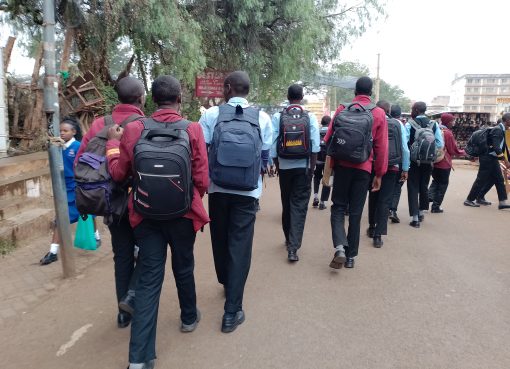The Kenya Film Classification Board (KFCB) has declared an aggressive crackdown on filmmakers operating without a valid license across the country, thus intensifying efforts to control the distribution of unrated films.
KFCB Chairman John Njogu Njoroge announced this initiative Monday during a press briefing at the Lamu Island, where he stated that the primary focus of the nationwide crackdown is to tackle illegal exhibition of films in public cinemas and on regular television channels.
The move comes in response to growing concerns about the proliferation of unrated films, especially at the coastal region.
The announcement follows a significant legal development, with a Malindi Magistrate’s Court ruling on the controversial Kenyan preacher Paul Mackenzie.
Mackenzie received a one-and-a-half-year jail term recently over illegal distribution of unrated films that supported his radical sermons.
Additionally, he faced a further six months in jail for operating a film studio without a valid license.
Njoroge emphasized the board’s determination to crackdown on illegal cinemas operating without proper licenses.
“Our intention is to ensure that issues such as pornography and radicalization are curbed and reined in before they find their way into our children,” he said.
Consequently, filmmakers have been encouraged to engage with the KFCB for advice and classification of their films, while ensuring compliance with the law.
The Board Chairman highlighted the importance of collaboration between filmmakers and the regulatory body to maintain a responsible and lawful film industry.
“Moreover, the KFCB has been in communication with popular social media platform like TikTok to address concerns about video content accessible in Kenya, he stated, further alluding to the ongoing discussions between the national government and TikTok regarding the content being made available on the platform.
On her part, KFCB Coast Regional Manager, Yvonne Musyoki urged parents to monitor the content their children are being exposed to on the internet.
Musyoki stressed the board’s commitment to working closely with law enforcement agencies to enforce stringent measures against unclassified films that may circulate publicly.
“Some of these unclassified films contain content that causes manipulation and radicalization of communities, as has been the case with Al-Shabaab propaganda videos and the Shakahola incident,” she said, urging the public to exercise vigilance, especially with content shared through platforms like Telegram and Whatsapp.
By Amenya Ochieng





